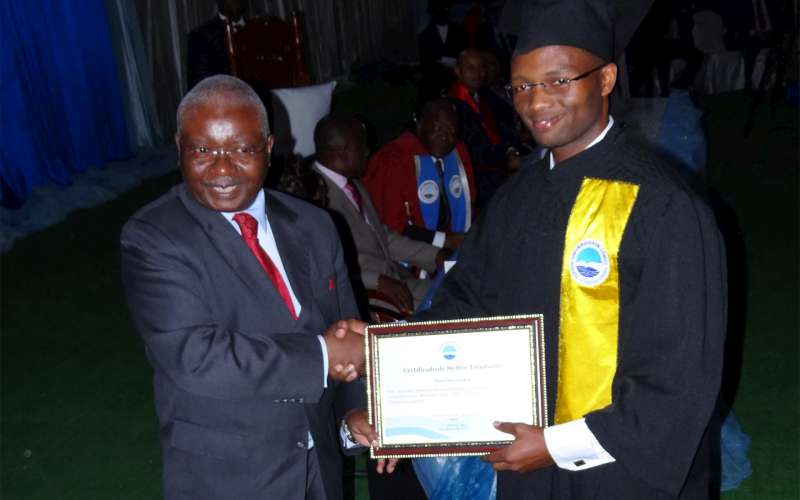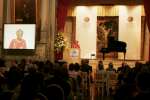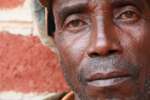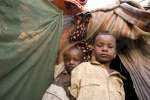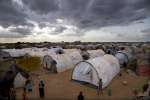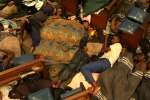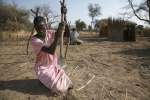- Text size
 |
|  |
|  |
| 
- Français
Emotional graduation ceremony triggers memories of Burundian scholar's journey
Telling the Human Story, 24 December 2014
NAMPULA, Mozambique, December 24 (UNHCR) – When Oliviet Nyankuru heard his name being called out at a recent graduation ceremony in Mozambique's Lurio University, he became emotional at the thought of his long tough journey there.
"I remembered my whole story, I thought back to the last time I saw my mother and all the complicated moments I had lived through, but hearing my name, it was like I was dreaming and all my hard work paid off," says the 28-year-old medical graduate, who received his diploma from Mozambique's President Armando Guebuza.
"I felt like a very important person. All my teachers were so happy for me and they were congratulating me. For a moment I forgot I was a refugee," Oliviet adds of the ceremony in the northern Mozambique city of Nampula. He was able to study at the university thanks to a scholarship granted under UNHCR's Albert Einstein German Academic Refugee Initiative, better known as DAFI.
Oliviet grew up in Burundi's Cibitoke province. He never knew his father, who left when his mother was pregnant with him. She was killed in Burundi when civil war broke out in the 1980s and he was taken in by his uncle and his aunt who already had five children of their own
"My mother was everything to me, so when she died I lost all hope," Oliviet reveals. The eight of them fled Cibitoke and escaped to northern Mozambique. He doesn't remember much about his escape as he was just 10.
The family was given refugee status in Mozambique in 1997. Oliviet's uncle, who is an electrician by trade, was hired by some Roman Catholic priests who gave them shelter. Oliviet attended a local school and learned Portuguese to try to fit in. The school was overcrowded so he had to attend classes in the evenings, which was the only time they had space for him.
"My uncle used to tell me all the time: 'You are not in your home, you are in a foreign country where you don't have family to assist you. You don't have your own field to plough, so you must study hard so you can become someone.'" Nyankuru took his relative seriously, and it paid off.
After graduating from high school with almost perfect scores, he was accepted to medical school at Lurio University in Nampula. "Maybe I was naive," he says laughing, "But I didn't even realize that I would have to pay fees to attend."
Oliviet had to ask the university for somewhere to sleep in his freshman year, and his uncle tried to help him with some of the fees. He then heard about the Germany funded DAFI programme for refugees. After presenting his case in 2008, he was awarded a scholarship.
"I really wanted to become a doctor. I remember seeing so many people suffering when I was young, during the fighting and when we were fleeing and they were being helped by doctors and nurses and I thought I want to help people like that too one day," says Oliviet.
"The DAFI scholarship programme is very important for our work here. We have so many talented students among the refugee population and it is the only way we can manage to help them with tertiary education," says Isabel Marquez, UNHCR's representative in Mozambique.
Nyankuru is now working in a public hospital in Zambezia province in Mozambique. "Mozambicans have been very hospitable. They received me and they helped me even though I am a foreigner and a refugee. I hope one day I can become a citizen," says Nyankuru.
Mozambique hosts more than 16,550 refugees and asylum-seekers, mostly from the Great Lakes region and the Horn of Africa.
By Tina Ghelli in Nampula, Mozambique
